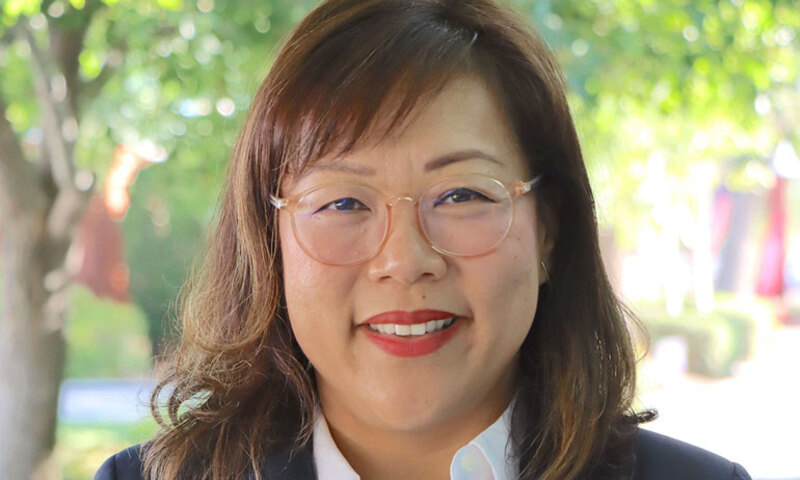Earning a college degree opens up a world of career opportunities, but it’s not the whole story. A solid career plan is important in helping provide a roadmap for making wise choices about your current job as well as future career moves. Crowell has resources to help, for both alumni and current students.
Brooke Lee is the new career specialist for Crowell School of Business, and there are three facets to her work.
- helping students and alumni with coaching, support, internships, graduate school advice, resumes, interview prep and other resources;
- involving and advising faculty about job trends and resources;
- developing and maintaining a network of employers who are interested in hiring from Biola, including sharing the attributes of Biola University and the caliber of Biola grads.
We spent a few moments with her and she shared some of the basics of preparing to look for a job, whether it’s your first one or your next one.
How do you assess your personal attributes before job-hunting?
It’s very important, and it varies so much. Sometimes it’s communication skills — some people come in and don't make eye contact with me while talking. Or it’s recognizing that there's a difference between casual and professional communication and posture, and practicing that. Those are things that I can help with.
It’s also important to be able to talk through fears and self-worth, and that internal voice that asks if I don't find a job immediately, what is my worth? Have I failed? I don’t pretend to do therapy, but a lot of my appointment time involves helping students honestly evaluate their strengths. I can help put those into a real-world perspective so they can walk out of the office equipped with the skills and confidence to believe I can do this!
Are the challenges different now, in finding or changing careers?
Yes and no. You still need to have a great resume, and the traditional resume has not changed much for 20–30 years.
What has changed is how networking occurs. There is still value in face-to-face networking, but now we’re in a digital age where so much involves LinkedIn, social media and other platforms to network virtually. But face-to-face networking is still a very critical piece, so you have to do both.
For example, you’re likely competing against many applicants online for one job position. Your resume is your first impression, instead of your physical presence. It becomes that much more important to use different strategies to connect with potential employers, apart from the whole application system.
What is the job market like now?
The market right now depends on the industry. Technology is still attractive — the big companies, the famous names — and they’re still hiring at entry level, but middle management has been reduced. But healthcare, hospitality and e-commerce are just booming.
When should you look around or change jobs?
A lot of it depends on culture. Does the team you’re on — or the company itself — have a healthy environment? Are there growth opportunities in the company? For example, I was very happy with the culture of one of the last companies I was with. However, I knew I wanted a larger scale, larger resources and more opportunities to learn and grow, and Amazon had the opportunities I was looking for.
However, when I was a recruiter, we really had questions about people who stayed in a job less than three years. Things were chaotic in 2020 and a couple of years thereafter, so some holes in the resume might be expected. But that's something to be mindful of. It doesn't matter how prestigious the school you went to or your academic excellence — if you're job hopping, that's a huge red flag.
How do you prepare for not just this job, but for all the jobs after that?
Here are five pillars I recommend to prepare for your next job and future career:
- Character – One thing we don’t talk about enough is character. Don't burn your bridges. Even if your current or prior companies aren’t great, don’t badmouth them. They’re part of your career network and you never know if you might need that.
- Relationships – Learning how to build a good relationship with your supervisor and your team is also extremely critical. You may have many talents and skills, but being a good teammate is often crucial; being able to keep your word, treating your team respectfully, being able to earn trust, being diligent, etc.
- Don’t Hurry – Again, don’t be too quick to jump ship. What I used to look for as a recruiter was three to five years in a position — you developed some specialized skills and had sufficient time to provide solutions to challenges and experience a project end-to-end.
- Be Involved – Outside of class activities matter. Joining clubs or professional organizations will help you develop a broader set of relationships and skills. Being a part of leadership can both develop and display your character and personality.
- Be a Learner – You have to be a lifelong learner no matter what. Every position and every company has its own processes and procedures — different software, different tools, different techniques — and things in business are always changing. So keep being curious.
How should someone prepare before meeting with you?
Come in with something in hand, either a position description or just a list of jobs or fields or companies they’re interested in. If they don't know how to write a resume, bring in a list of experiences, including volunteer and club participation. We can do a lot with that.
The "Calling and Career Roadmap" is strategically designed to prepare undergraduate students at the Crowell School of Business to become career-ready. Students explore vocational callings and participate in workshops, internships, seminars and receive guidance from experienced faculty members to reach their full potential.
 Biola University
Biola University


.jpg)
.jpg)
